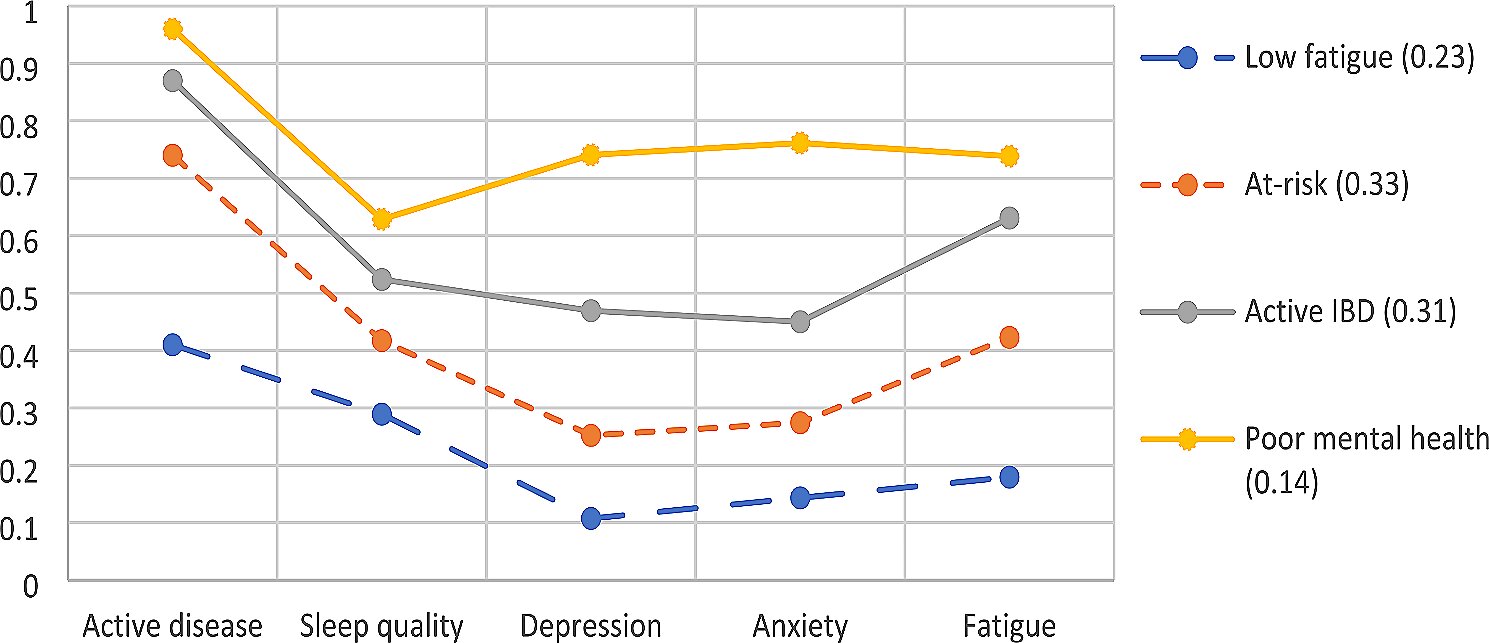
Helping people with inflammatory bowel diseases to get a better night’s sleep could help keep the condition at bay and improve their quality of life, say Flinders University and Flinders Medical Center researchers, as they work to untangle the threads of the disease.
Inflammatory bowel disease (IBD) affects an estimated 100,000 Australians, and more than 6 million people worldwide, yet there is currently no known cause or cure.
The best outcome for people diagnosed with the disease is to achieve remission—meaning the disease is not active—and maintain a good quality of life, says researcher Dr. Alex Barnes from the College of Medicine and Public Health and the IBD unit at Flinders Medical Center.
Fatigue is one of the most common symptoms in people living with IBD, leading to a poor quality of life, and current treatment options are mostly ineffective.
“There is a complex relationship between sleep, fatigue and IBD, with sleep disturbances common in people with IBD,” says Dr. Barnes.
“Sleep remains an underexplored area in IBD research, despite it being a significant cause of fatigue, and likely to influence other issues such as mental health conditions and aggravate IBD activity.
“Understanding the relationship between sleep, IBD and the causes of fatigue could lead to more effective treatment strategies and is crucial for managing the diseases effectively,” he says.
IBD is a term for two diseases (Crohn’s disease and ulcerative colitis) that are incurable, chronic relapsing–remitting inflammatory conditions affecting the digestive tract, leading to debilitating symptoms and poor quality of life.
The first-of-its-kind study, now published in Digestive Diseases and Sciences, sought to demonstrate objective changes in sleep patterns due to IBD activity.
“Existing studies show conflicting information on the relationship between IBD and sleep. We wanted to address this by using objective measures of both sleep quality and IBD activity to better understand the relationship between the two,” says Dr. Barnes.
The study used the “gold standard” of sleep assessment—polysomnography—on people confirmed to have active IBD who also completed a survey on sleep quality, IBD activity, depression and anxiety.
“We found that people with active IBD have distinct changes in their sleep patterns compared to those with inactive IBD. They took longer to fall asleep, spent less time in deep sleep and had a shorter total sleep time,” says Dr. Barnes.
“With a more comprehensive understanding of the relationship between sleep and IBD, we hope to be able to address sleep-related fatigue and improve patients’ quality of life,” he says.
Another recent study by Flinders University and Flinders Medical Center, published in BMC Gastroenterology, explored the concept of “subcategories” of fatigue by collecting data from 535 people with IBD and analyzing the relationships between factors such as fatigue, sleep quality, anxiety, depression and IBD activity.
“In the past, fatigue might have been viewed as a single, uniform symptom. However, we now know that fatigue is much more complex and can manifest in different ways, depending on each person’s unique circumstances,” says Dr. Barnes.
The researchers grouped people with IBD into four profiles based on their symptoms differing by sleep quality, IBD activity, depression and anxiety.
The low fatigue profile (23%) had mild levels of fatigue and low levels of depression and anxiety; the poor mental health profile (14%) was characterized by severe anxiety and depression; the active IBD profile (31%) had high levels of IBD activity and poor sleep quality, but their mental health was only mildly affected. The at-risk profile (33%), being the largest profile, had mild levels of depression and anxiety and moderate levels of fatigue.
“Fatigue is common in people with IBD and has been associated with increased symptoms of IBD, poor sleep quality, depression and anxiety,” says Dr. Barnes.
“By identifying these distinct profiles of fatigue, health care providers can develop more targeted treatment strategies and improve patient outcomes.”
Based on these latest studies, researchers recommend further investigations into quality of sleep and levels of fatigue to improve future treatments for people living with IBD.
“We are working to untangle the threads and strands of inflammatory bowel diseases so we can better understand how to treat them,” says co-author A/Prof Reme Mountifield.
“By identifying the underlying mechanisms and causes of the diseases, we can design bespoke therapies to address specific aspects of the disease process such as sleep, which can ultimately improve patients’ outcomes and quality of life,” she says.
More information:
Alex Barnes et al, Active Inflammatory Bowel Disease Is Associated with Short Sleep Duration via Objective Measures, Digestive Diseases and Sciences (2024). DOI: 10.1007/s10620-024-08485-8
Alex Barnes et al, Latent profiles of fatigue in inflammatory bowel disease, BMC Gastroenterology (2024). DOI: 10.1186/s12876-024-03239-2
Citation:
Waking up to the hidden struggles of inflammatory bowel diseases (2024, August 26)
retrieved 4 September 2024
from https://medicalxpress.com/news/2024-08-hidden-struggles-inflammatory-bowel-diseases.html
This document is subject to copyright. Apart from any fair dealing for the purpose of private study or research, no
part may be reproduced without the written permission. The content is provided for information purposes only.



